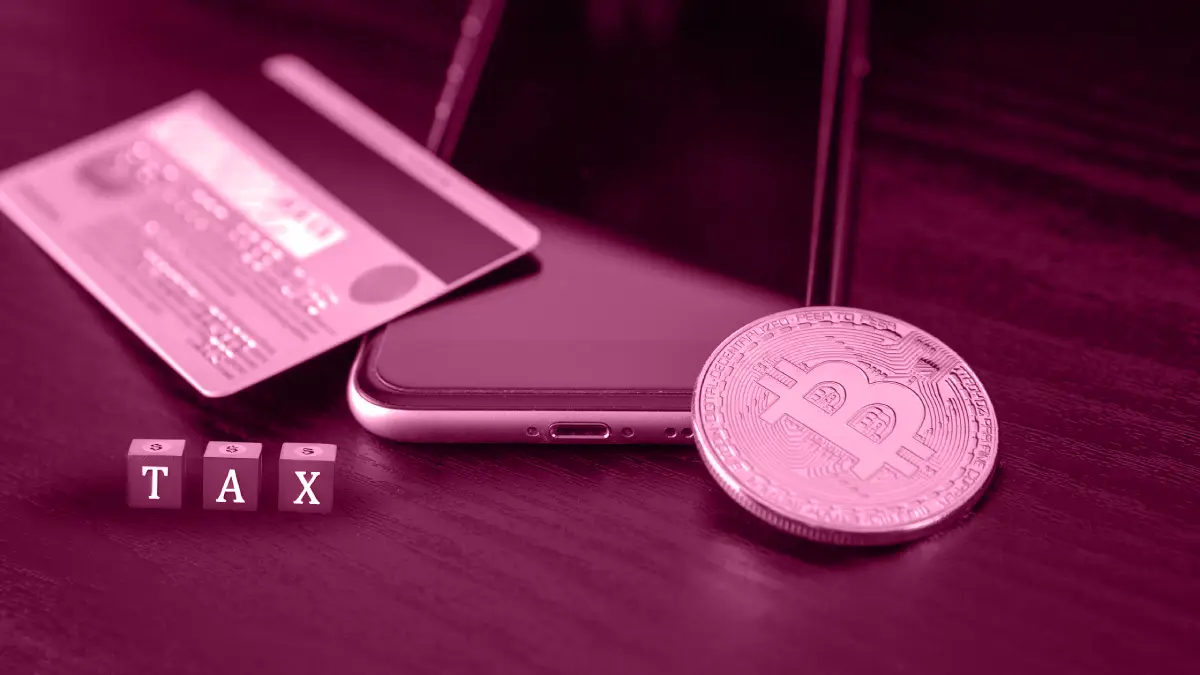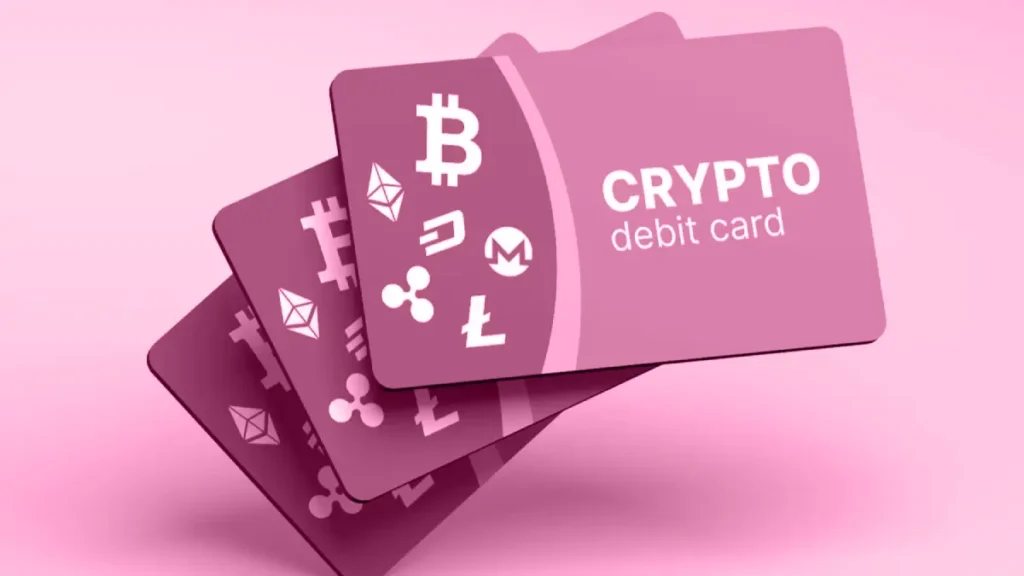Crypto debit and credit cards allow you to use cryptocurrency to buy things from stores that usually don’t accept digital money. But, you might have to pay taxes when you spend cryptocurrency because, in most countries, it’s considered taxable. Find out more about taxes on crypto credit and debit cards in our helpful guide.
Understanding Tax Implications of Crypto Card Usage
Here are some important things to know about taxes when using crypto credit and debit cards:
- Earning Rewards: Any rewards you get from using these cards might be seen as income by tax authorities.
- Capital Gains Tax: If the value of your cryptocurrency goes up from when you got it to when you spend it, you might have to pay tax on that increase.
- Reporting Transactions: You need to report all your transactions and rewards from using crypto cards accurately to follow the law.
- Tax When Spending Crypto: When you use cryptocurrency to buy things with these cards. Seeing it as a taxable event means you may need to pay tax on any profit you earn.
Taxation on Crypto Debit Card
When you use a crypto debit card, knowing how it might affect your taxes is important.
Typically, these cards convert your cryptocurrency into regular money (fiat) when you make a purchase. This conversion is seen as selling your cryptocurrency, which could mean you have to pay capital gains tax.
Example:
Let’s say you buy $200 worth of Ethereum. Later, the value of your Ethereum increases to $500. When you use your crypto debit card to buy a Playstation 5 for $500, $500 worth of your Ethereum is converted to fiat. This means you’ve made a capital gain of $300 ($500 – $200), which might be taxable.
Recording Transactions: To report your taxes correctly, you need to keep track of each time you convert your cryptocurrency to fiat by using your debit card.
Using Stablecoins: Some crypto debit cards let you buy things with stablecoins. Even though stablecoins aim to maintain a constant value, tax authorities still treat them as regular cryptocurrencies for tax purposes. This means you might still have to pay capital gains tax, but the amount could be very small.
Tax Advantages: There aren’t usually tax benefits to using a crypto debit card, but it’s important to understand how it might affect your taxes to avoid any surprises come tax time.
Can Crypto Debit Cards Reduce Your Tax Bill?
Surprisingly, using your crypto debit card might actually lower your tax bill, especially if the value of your tokens has dropped since you got them.
How It Works:
If the current value of your cryptocurrency is less than what you paid for it, you can claim a capital loss on your taxes. This loss can help offset any capital gains you’ve made during the year, as well as up to $3,000 of your regular income.
Tax Loss Harvesting: To learn more about how to take advantage of these tax benefits, check out our guide on tax loss harvesting.
Are Debit Card Rewards Taxable?
When it comes to rewards you earn from using your crypto debit card, things are a bit less clear.
Spending Rewards: When you earn cashback rewards by making purchases with your card, authorities likely won’t classify this as taxable income, akin to the situation with standard debit cards.
Opening Bonuses: However, if a bank awards you rewards simply for opening a new account. They are more inclined to treat these as taxable income.
Taxation on Crypto Credit Card
Unlike debit cards, when you use a crypto credit card, you’re buying on credit rather than exchanging your cryptocurrency for regular money. This means purchases made with crypto credit cards aren’t subject to the capital gains tax. Which is a tax on the profit made from selling something like crypto or stocks.
Example:
If Alex buys a laptop for $1,000 using a crypto credit card, Alex is not converting cryptocurrency into $1,000 of fiat currency. Therefore, this transaction does not trigger capital gains tax, unlike if Alex had sold cryptocurrency to get fiat currency for the purchase.
Taxability of Credit Card Rewards
The IRS generally treats rewards received for simply opening a new account, without any spending requirement, as taxable income. Conversely, the IRS often views rewards that one earns by meeting spending requirements as non-taxable rebates. Since rebates act like small refunds on purchases, they typically do not require taxation.
Example:
If a credit card company awards Jamie 50,000 points, valued at $500. Simply for opening a new account without any purchasing requirements, the IRS could view this reward as taxable income.
In contrast, when rewards come from spending specific amounts, they are typically seen as non-taxable rebates. Rebates act like receiving a discount or a small refund on purchases, so you usually don’t have to pay taxes on them.
Example:
If Jordan charges $5,000 on a credit card and earns a 5% reward back, this reward is considered a rebate. Because it acts as a discount on the purchases made, the $250 cashback is not taxable.
Crypto Debit Card Rewards and Tax
Rewards that don’t require spending are likely taxable income. Meanwhile, rewards based on your spending are viewed as non-taxable rebates. This distinction is crucial for understanding how your crypto transactions might affect your taxes.
How Catax can help you in this Taxation
Catax can assist you in managing your tax obligations for transactions made with your crypto debit and credit cards. Simply link your exchange or wallet to Catax either automatically via an API or by uploading a CSV file. After connecting, Catax will actively compute your gains and losses from selling, trading, or using crypto, along with determining the fair market value of any crypto income you receive. Starting with Catax is entirely free – you only pay when you choose to download a tax report.
FAQs (Frequently Asked Questions)
No, purchases made with crypto credit cards are not subject to capital gains tax because you are buying on credit and not converting your cryptocurrency into fiat currency.
Tax authorities may tax rewards for opening an account as income, while they typically view rewards earned from spending as non-taxable rebates.
You can use tax software like Catax to automatically track and report your crypto transactions and rewards by connecting your exchange or wallet via API or uploading a CSV file.
Yes, using a crypto debit card converts cryptocurrency to fiat at the time of purchase, which could result in a capital gains tax if the value of the cryptocurrency has increased since you acquired it.
Even though developers design stablecoins to maintain a constant value, tax authorities treat them as regular cryptocurrencies for tax purposes. This means spending them could still trigger capital gains tax, albeit possibly a minimal amount.
Yes, if the value of the cryptocurrency used with your debit card has dropped since you acquired it, you might claim a capital loss, potentially reducing your tax liability by offsetting other capital gains or up to $3,000 of your income


